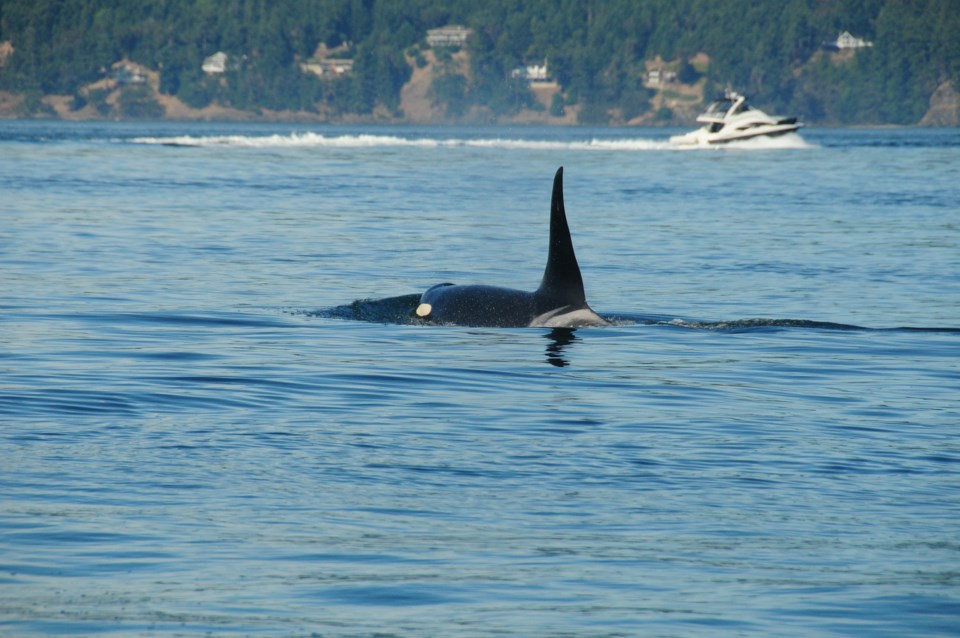On April 29, 2022, under the pretence of protecting the southern resident killer whales (SRKW), the federal Department of Fisheries and Oceans (DFO) announced additional closures to the already severely restricted recreational salmon fishery in southern B.C.
The problem is, these measures may actually hurt the SRKW rather than help. Why? Because the recreational fishery is demonstrably not the problem.
Indeed, the Marine Mammal Research Unit of the University of BC ranked such a plan as “low to medium” in terms of “scientific justification and confidence in this action producing the desired benefits to SRKW” questioning “...whether partial or total fishery closures...would significantly increase the numbers of chinook that SRKW could capture.”
But, science, data and expert testimony never stopped the DFO from enacting bad policy.
Sadly, the losers in this ill-conceived publicity stunt are not only SRKWs and recreational fishers.
In fact, everything and everyone that depends on healthy salmon populations suffers — including the very credibility and standing of the DFO itself.
Welcome to the post-truth world of fisheries and wildlife management.
In recent years, the idea that the SRKW are “starving” has been aggressively promoted as the cause of their decline in countless fundraising efforts by environmental groups, which also insist on recreational fisheries closures as a solution.
As such, this flawed narrative has not only gained wide popular acceptance; it is one of the very foundations upon which this latest DFO charade is based. After all, who doesn’t want to save starving whales?
But science suggests otherwise.
In a research paper on prey abundance published in October 2021, the authors’ findings indeed did “.. not support the hypothesis that southern resident killer whales are experiencing a prey shortage in the Salish Sea during summer and suggest a combination of other factors is affecting overall foraging success.”
And while commercial and recreational fisheries have already been severely curtailed or completely eliminated over the past two decades, closing fisheries remains the rallying cry of the environmental non-governmental organizations (ENGOs) in the “starving whale” campaign. Furthermore, in examining the effects of historical levels of pinnipeds (seals and sea lions) in B.C., a 2017 paper found “increasing consumption of chinook salmon by pinnipeds may also be limiting the growth of the southern resident killer whale population.
Our results suggest that at least in recent years competition with other marine mammals is a more important factor limiting the growth of this endangered population than competition with human fisheries.”
Faced with this prospect, however, the ENGOs are forced to abandon science and logic in favour of ideology and money. Pitting one group of marine mammals against another is nothing less than an existential conundrum for the “Save the Whales” lobby.
Regardless of any scientific validity, “Save a whale, harvest a seal” is simply not a bumper sticker the ENGOs can sell.
Killer whales and recreational anglers both require healthy salmon stocks to survive. The ENGOs do not. Their survival depends on money. And unlike government ministries, ENGOs are under no obligation to act in the public good. Therefore, when donations are threatened, emotions and ideology trump science and biology every time.
But this discussion is not about ENGO motives or integrity. It is about the undue negative influence of the powerful, well-funded ENGO propaganda machine on a federal regulatory agency.
For almost 35 years, scientist Alexandra Morton has doggedly demonstrated how DFO policy favours the corporations operating open net pen fish farms, despite strong scientific evidence they are a major factor in the decline of wild salmon stocks. Revealing how DFO muzzled and discredited their scientists, intimidated her and other independent scientists, buried key information, and even defied rulings by the court in the service of fish farms, she clearly exposes a publicly funded federal agency working on behalf of multi-national corporations rather than the Canadian people — not to mention wild salmon.
Similarly, the most recent DFO closure of the recreational fishery shows a concerning influence of the powerful ENGO lobby. Rather than fulfilling their public mandate by taking meaningful, science-based measures to address the salmon and SRKW issue, DFO continually opts to placate the often unfounded, yet always well-funded ENGO demands.
The Parliamentary Standing Committee on Fisheries and Oceans is currently hearing testimony from various fisheries-related sectors. Despite the often conflicting interests represented, a common and growing refrain calls for the complete elimination and re-structuring of the entire agency.
Multinational corporations and ENGOs should naturally be expected to act in their private interests.
But when those interests diverge with science and responsible management of wildlife species, DFO is obliged to act otherwise.
Unfortunately for the SRKW, salmon populations and recreational anglers, this does not appear at all to be the case.
Roy Tanami is a published author and local fishing guide.






